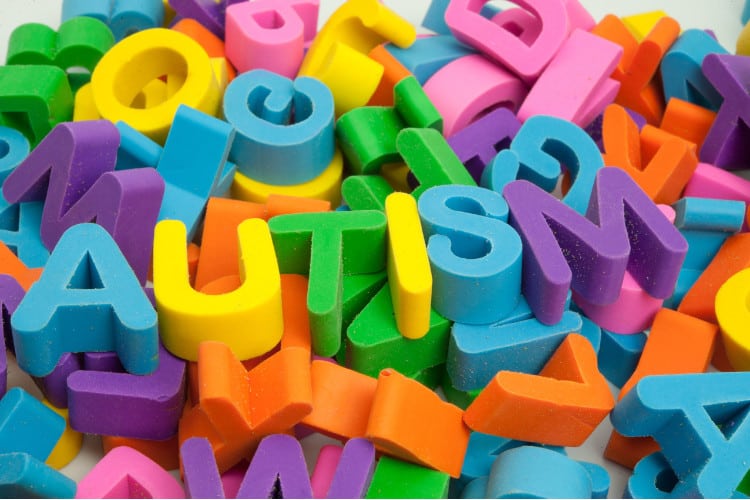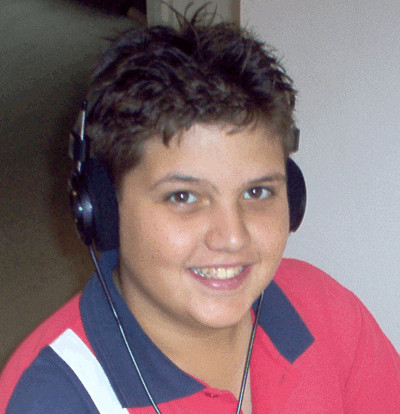To understand why routines are so important, we first must explore some of the challenges that result in needing routines to cope. Some of the skillsets that challenge those in the neurodiverse community mean everyday living can be a challenge. Routines can bring security, comfort and predictability to a child who struggles with everyday tasks.
One of the challenges to the neurodivergent brain is being flexible.

Autism and Cognitive Flexibility
Why is being flexible so important and why do neurodivergent kids have so much trouble with it?
There are three types of flexibility: cognitive, behavioral and moralism. All three are an issue for neurodivergent kids.
Flexible thinking (or cognitive flexibility) is one aspect of cognitive control, the ability to develop and maintain goals and modify one’s responses to meet those goals. It is the ability to switch quickly from one task to another to meet changes within the environment. People who have autism struggle with these abilities.
According to Oleg et al, “Behavioral difficulties observed in ASD, such as repetitive language and body movements, resistance to change, inflexible thinking, and problems with switching from one activity to another, are all potential indicators of impairment of cognitive flexibility.”
Cognitive flexibility is a key component in successful social relationships and navigating everyday tasks. It is one of the reasons neurodivergent kids have trouble in this area
diana f cameron
Cognitive Flexibility: A Building Block of Executive Functions
Cognitive flexibility is a major component of executive functions which drives actions like:
- Thinking before acting
- Resisting temptations
- Resisting the urge to act impulsively
- Mentally playing with ideas
- Staying focused
Cognitive flexibility occurs in 3 main ways:
- It is used when we are thinking about more than one thing at a time
- The ability to change our thinking in response to changing demands or expectations
- The ability to see things from another’s perspective
Cognitive flexibility is a key component in successful social relationships. Conflict, problems in our relationships, people not reacting how you think they will or even something as simple as playing a board game the previous player doing something different to what you think they will, necessitating an immediate change in your thinking and actions.

It is also necessary for us to think about a scenario in more than one way. For example, if you have made a date to see family but it was rescheduled at the last minute because someone gets sick. For a person with cognitive flexibility some thoughts might be:
- “When am I next free?”
- “What am I doing for the rest of the week and when can I fit it in?”
- “What will I do today with the time I now have free?”
For someone without cognitive flexibility they will really struggle with thoughts around the situation and 2 things may happen:
- They might freeze and do and say nothing
- They might get agitated because of the change in routine, not knowing how to change the expectation of keeping the original appointment
Cognitive flexibility is impaired in individuals with autism. It affects things that you may not realize.
Cognitive Flexibility is what is needed to understand that Mom has gone out of the room and will return later. Children need to manage two sets of data for this task:
- Where is Mom? Is she ok?
- How do I feel about Mom leaving? Am I ok?
Children with autism normally struggle with this skill because their minds tend to focus on single items or sets of data. For some things, the child with autism might understand but for others that you may think are the same they don’t. For example: A child with autism can understand that their drink bottle is in the bag racks outside the classroom. They will understand that concept because they are dealing with one set of data. The bottle is in the bag.
The same child with autism might melt down when Mom leaves the room (or some may not even notice). If a meltdown occurs, it is because it requires the brain to deal with the two sets of data mentioned above.

They need the sense of interoception to acquire this skill because interoception allows them to read what is happening inside their body (one set of data – how do I feel about Mom leaving) as well as what is happening outside their body (data set number 2 – where is Mom? Is she ok? Will she come back?)
To process these two sets of data simultaneously needs the processes of the prefrontal cortex and cognitive flexibility.
It goes much deeper than just feeling unsure or being needy. Are you starting to see why a child with autism may feel anxious because of a change in routine?
Cognitive Flexibility: A Mediator Between Perceived Stress and Memory Complaints
Multiple studies have linked the role of these functions as mediators between perceived stress and memory complaints. For a lot of children and adolescents, there was a lot of perceived stress associated with the pandemic.
- Will my family be ok?
- Will my parents die?
- What will happen to me if they do?
- Will my parents get sick?
- Will I get sick?
- Will I ever get to be with my friends again?
Perceived stress is very real and for many children with autism, even though you may not see a cause, their perceived stress of a situation creates the same response. The brain sees all stress as a threat and takes measures to protect itself and the body.

The same study mentioned at the beginning of this chapter also showed “difficulty in cognitive flexibility in parents of children with ASD and found that self-reported cognitive flexibility difficulty in parents of children with ASD was significantly negatively correlated with autistic traits, which is similar to previous findings in ASD individuals.”
So when both parents and children have cognitive flexibility challenges, it is going to escalate things much more quickly and be stressful for everyone involved.
Other Ways Cognitive Flexibility Affects Behavior
In the Paradox of Cognitive Flexibility in Autism, Geurts et al explore the numerous ways that a lack of cognitive flexibility impacts on behavior.
Here are some of their findings:
Symptoms of Autism
Potential Relationship with Cognitive Flexibility

| Impairments in Social interaction | Cognitive Flexibility Component |
|---|---|
| Impairments in the use of multiple nonverbal behaviors to regulate social interaction (eg eye gaze, facial expression) | Inability to shift visual attention from eyes to mouth, from one speaker to another speaker |
| Failure to develop peer relationships | Social rigidity with social rules. Can’t shift social behavior to conversation to meet the changing demands |
| Lack of spontaneous seeking to share enjoyment, interests or achievements with others | Inability to shift attention to extra-personal space. Difficulty in shifting to another person’s perspective |
| Does not actively participate in simple social play or games | Inability to shift attention from themselves to others and to see things from another’s perspective |

| Impairments in Communication | Cognitive Flexibility Component |
|---|---|
| Preoccupation with one or more restricted patterns of interest that is abnormal either in intensity or focus | Cannot move away from one interest, overly focused on one specific aspect |
| Marked impairment in being able to initiate or sustain a conversation with others | Can’t shift to another person’s perspective. Talks about topics of own interest not knowing when to stop |
| Lack of varied, spontaneous make-believe play or social imitative play appropriate to development level | Inability to shift to different, pretend or unreal view of the world |

| Restricted Repetitive Pattern of Behavior | Cognitive Flexibility Component |
|---|---|
| In flexible adherence to specific, nonfunctional routines or rituals | Insistence on routines and rituals |
| Repetitive motor mannerisms (eg hand or finger flapping, twisting etc) | Perseveration expressed in motor movements |
| Persistent preoccupation with parts of objects with abnormal intensity | Difficulties in shifting attention, disengaging attention from details (hyperfocus) |

Routines: Security and Predictability
Routines provide a framework that is predictable and that spells security for individuals that can’t cope with change. Without the brain capacity to move from one set of information to another quickly, the predictability that routines provide help to bring calm and peace.
For a neurodivergent child, the brain looks for order and patterns which also bring predictability. These can be found in routines. The challenge arises when the routine needs to be changed, especially at the last minute.
Individuals with autism need a plan, and time to see the different path. Some struggle so much with cognitive flexibility that nothing can be changed without a meltdown.
I had a mother once who drove her child to school. They always drove the same way because it was convenient. One day, she decided to go a different way because they were running a little late and she thought it would be quicker. Her child became extremely agitated when they had to take an alternate route. That soon escalated into a full meltdown.
She tried everything to calm her child who just got increasingly distressed. Until she went back and retraced her steps and began again taking the normal route to school, nothing would appease her child.
That is an extreme case of cognitive inflexibility, but it happens more than you think. Routines provide the safety net for those that struggle with this skill.

Music Can Play a Role
Music is incredibly helpful to many children with autism. It provides the structure, patterns, and predictability that their brain seeks.
In environments that are tricky, you will often see neurodivergent children with headphones on. Some are just buffering sound, but others are playing music. This can be calming to the brain in times of stress. Changing routines will always be stressful so if you have established a routine of using headphones and music to help your child’s brain calm, this can be helpful in situations where the lack of cognitive flexibility is put to the test.
Can Cognitive Flexibility be Improved?

The good news is that it is possible to improve cognitive flexibility. As a certified practitioner of The Listening Program, I have seen improvements to various degrees with many of my clients.
The child I was describing above was one of those children. It got to the point after months of working with him that Mum was able to take a different route to school, and while he would become a little agitated, he coped with the change. Those simple things were life changing in that family and it extended to other things in and out of the home as well.
If you would like to explore the possibility of working with me, please contact Diana below and request some additional information to be sent to you.

